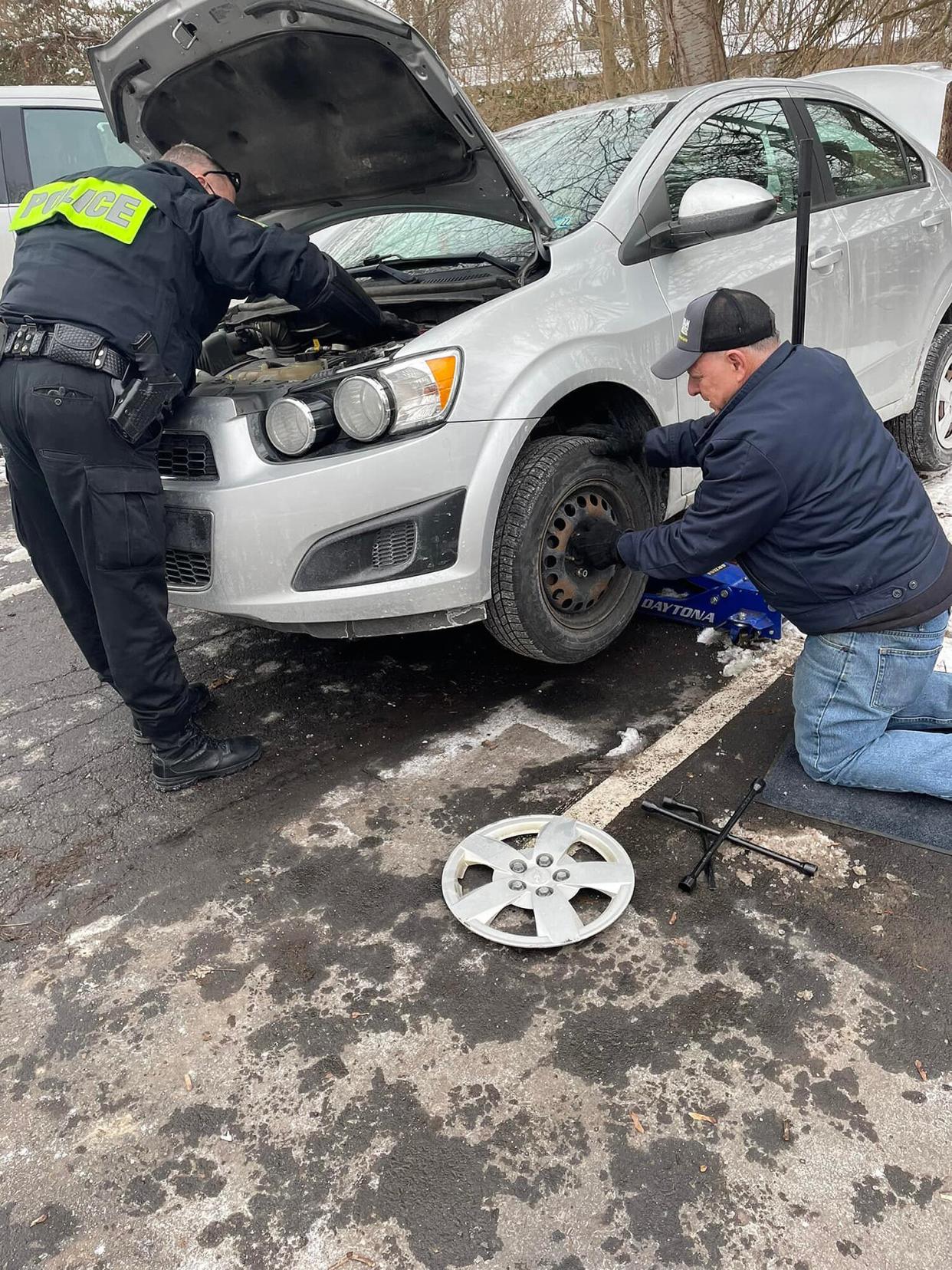Cat Rescued by Penn. Auto Mechanic After Getting Trapped Inside Car's Engine Near Pittsburgh

Ingram Borough Police/Facebook
A cat in Pennsylvania was rescued on Wednesday after getting trapped inside a car's engine.
Ingram Borough police (IBPD) shared on Facebook that an employee at a local automotive shop freed the feline after the cat wedged itself inside a silver Chevrolet, likely to escape the area's cold weather.
Temperatures in the Pittsburgh area had started to plummet Tuesday, with highs dropping from the low 30s to the mid-teens in 24 hours.
The Ingram Borough Police Department posted photos of the tricky rescue on their Facebook page alongside a message of gratitude for the heroic mechanic.
RELATED: Brianna Decker Says Her Dog Helped Her Through the Pandemic: 'She Was Great to Be Around'
"Thank you to John from Ryan Automotive/Goodyear in the CISC," the IBPD wrote. "He volunteered his time and got this large cat that had wedged itself in an engine compartment on W Prospect Ave free today."
"Much appreciated John!!!" the department added. "The cat thanks you as well as the owner of the car."

Ingram Borough Police/Facebook
Never miss a story — sign up for PEOPLE's free daily newsletter to stay up-to-date on the best of what PEOPLE has to offer, from juicy celebrity news to compelling human interest stories.
In some instances, frigid weather can be more dangerous for animals than humans. Veterinarian Jennifer Welser, DVM, DACVO, the chief medical officer at Mars Veterinary Health, outlined the risks that cold temperatures pose to pets in an interview with PEOPLE earlier this month.
RELATED: Cat and Elk Meet Face-to-Face at Colorado Window and Try to Cuddle Through Glass
"Extremely cold weather can quickly lower your dog's body temperature, causing frostbite and/or hypothermia," she said at the time.
Welser also noted that many pet owners believe animals are "more resilient" in cold weather due to their fur, "but the reality is they are susceptible to hypothermia and frostbite, too."
"Much like humans, when cold, a dog's body limits blood flow to their extremities and, instead, uses it to keep vital organs warm," the vet said. "This puts extremities at risk of injury and damage."
Wesler went on to highlight the importance of limiting pets' time spent outside and using coats or paw protectors to help keep them warm when going outdoors is necessary "on very cold days."
RELATED: Police Dog with Michigan Sheriff's Office Rescues Man Lost in Frigid Woods: 'Another Great Job'
"Pets should always have access to a warm, covered space during the winter," Wesler told PEOPLE. "If it's very cold, or you're spending more time outdoors, consider a coat and paw protection during walks if necessary — and if your pet will tolerate it."
She added, "Small, underweight, very young, or senior pets and those with short hair may be particularly susceptible to extreme temperatures, so it's always best to work with your veterinarian to determine the best situation and solutions for your individual pet's needs."

